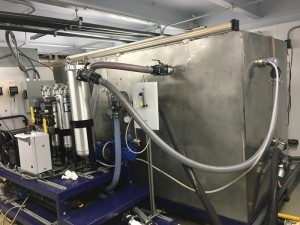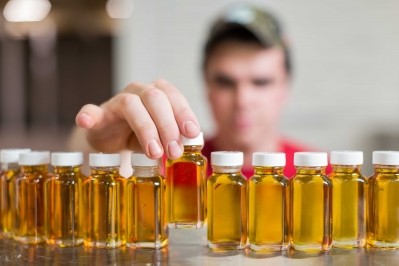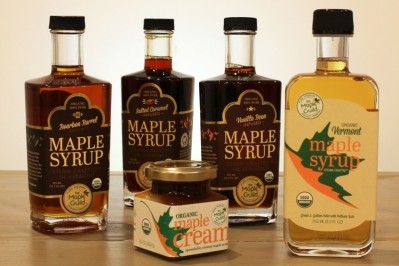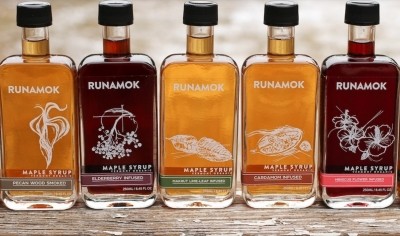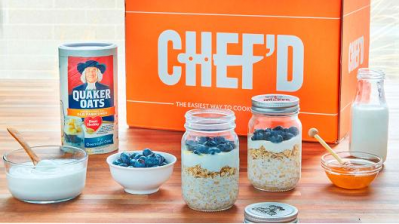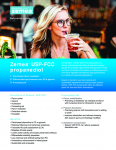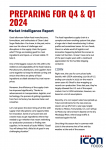How estate-produced Crown Maple grew from selling from a small cart to becoming a national brand
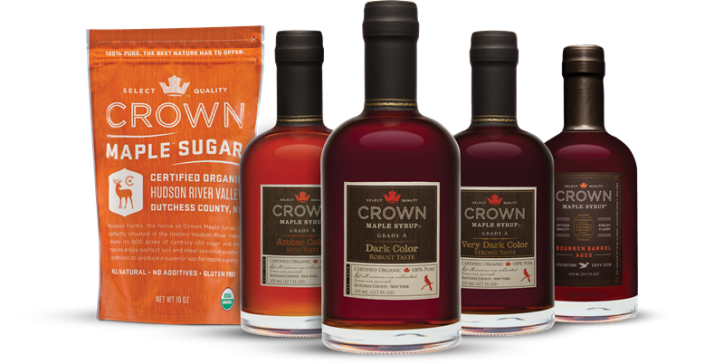
“We’re going to continue to see the acceleration of maple, both as pure maple syrup, or used as an ingredient—especially with the increasing message of the health benefits of natural products,” said Mike Cobb, CEO of Crown Maple.
The brand he helms was founded in 2010, not long after New York City financier Robb Turner purchased an 800-acre property in the Hudson Valley as a city escape for his family. The Turners weren’t aware that 20,000 mature sugar and red maples came with the property.
“One day he was out walking around the property with a neighbor, and he asked ‘what are you going to do with all the maple?’ And that started the investigation and reaching out to experts in the market,” Cobb said.
Single-estate: A differentiator in the maple syrup segment

Cobb said that the company’s first season of selling, in 2012, was through a simple cart and farm stand on the estate. Crown Maple began distributing in the New York-New Jersey-Connecticut tristate area in 2014, and the brand pushed for broader distribution with around 1,000 stores in 2015.
“[In 2016] we’re in close to 5,000 points of distribution. We’re in 43 states, so we’re now a national brand, we’re coast –to-coast,” he added. The brand’s increasing popularity goes-hand-in-hand with the rise of demand for premium and artisanal products within the food industry, as seen in other categories such as coffee and meat.
“We’re a sustainable business that is a 100% pure estate maple, which is different than most of the industry, where a lot of maple is produced by various farmers, and then sold to blenders and packers,” Cobb explained.
“Whereas we are estate produced and we’re not blending with other syrups, so everything we do comes from a specific estate,” he added. Syrup is extracted, purified, and bottled at the estate. Today, the brand has around 20-30 SKUs, which includes maple syrup of varying color grades (the darker, the stronger the taste), maple-derived sugar, and on a smaller scale, other products such as meat rubs and glazed nuts for sale at the estate’s shop.
Using microbubbles to purify the sap
According to Cobb, a food industry veteran who has worked for companies such as Unilever, Twinings North America, and Chocolaterie Guylian, the process used by Crown Maple is unique for its category, “which allows us to deliver a product of higher quality.
“It’s called DAF, or dissolved air flotation, which was adapted from water purification,” he said. “Essentially it pumps microbubbles into the sap at an early stage. Those microbubbles latch onto non-water soluble things like yeast, bacteria, making it float to the surface and we remove it—we do that before we do anything else, so our starting point is at a higher purity level.”
Crown Maple is about four times more expensive than most mainstream maple syrup brands, selling at around $16.95 for a 375 mL glass bottle, compared to around $4 for a 700 mL bottle of syrups by brands like Aunt Jemima or Mrs. Butterworth’s.
Cobb said that most of Crown Maple’s products are health conscious foodies who will use the syrup more than just as a breakfast topping. “It’s a culinary aide and an ingredient for cooking—it allows them to go from cocktail mixology to sauces to vinaigrettes and dressings,” Cobb said. This includes families to professional chefs to corporations who give out gifts to employees or partners.
“Our product is on market for Millennials who are looking for sustainable, organic, good for the earth product. We are a sustainable business, we’re taking what nature gives us and turning it into a fantastic product.”
